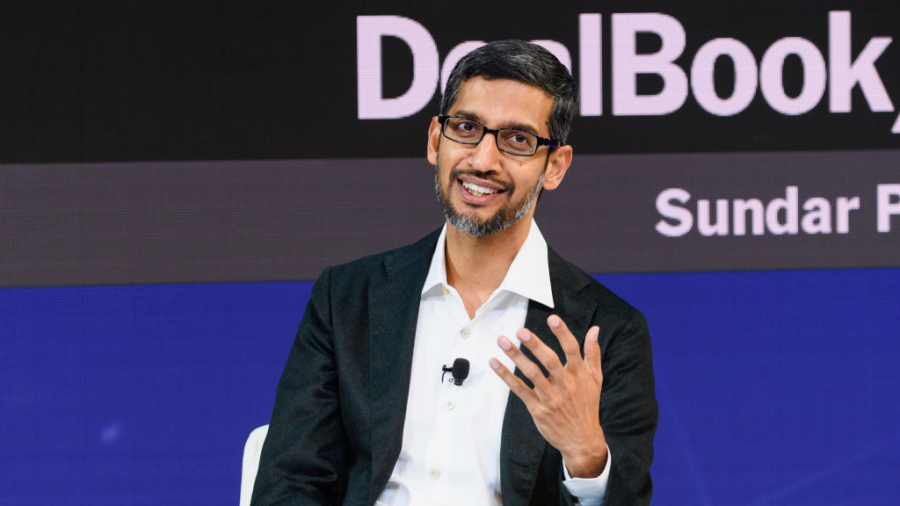Google tweaks search results on topics the company deems “controversial,” two Google sources revealed to Breitbart. Sometimes, the company even changes the results manually—something its chief executive, Sundar Pichai, denied in sworn testimony.
Among the singled out topics were abortion, gun-control activist David Hogg, the February 2018 An-148 Russian plane crash, the December 2018 Strasbourg terrorist attack, and even U.S. Rep. Maxine Waters (D-Calif.), according to an excerpt from the list and Google’s internal communications obtained by Breitbart, the right-leaning news outlet that has been breaking stories for months based on leaks from Google.
In the internal discussion thread, a Google engineer pointed to a change in Youtube search results for the keyword “abortion” that came shortly after a journalist from left-leaning Slate queried the company about the results. The engineer called the change a “smoking gun.”
“The Slate writer said she had complained last Friday and then saw different search results before YouTube responded to her on Monday,” wrote the employee. “And lo and behold, the [changelog] was submitted on Friday, Dec. 14 at 3:17 PM.”
Youtube, an online video platform, is run by Google.
The Slate writer reported that the top search results “were almost all anti-abortion,” such as videos of Dr. Antony Levatino, an abortion specialist who became an anti-abortion advocate; a video of a woman describing her regret after an abortion; and a clip of conservative commentator Ben Shapiro. After her inquiry with Google, the search results began including more pro-abortion content.
A Google employee noted in the discussion thread that it “seems like we are pretty eager to cater our search results to the social and political agenda of left-wing journalists.”
Manual Interventions
While Google products mostly rely on algorithms to shape search results, the company also engages in manual interventions, according to Daniel Aaronson, senior strategist for the Trust & Safety Product Strategy department at Google Search.
“In extreme cases where we need to act quickly on something that is so obviously not okay, the reactive/manual approach is sometimes necessary,” he said in the discussion thread.
This account appears to conflict with Pichai’s Dec. 11 testimony to the House Judiciary Committee:
“Last year, we served over three trillion searches and just as a fact, every single day, 15 percent of the searches Google sees, we have never seen them before,” he told the lawmakers. “So this is working at scale and we don’t manually intervene on any particular search result.”
Sometimes, Google also tweaks the search algorithms to give preference to results “using signals that we historically understand to be strong indicators of quality,” Aaronson said.
He acknowledged that decisions on the manual or algorithm interventions are done along lines that “are very difficult and can be very blurry.”
Company Culture
Aaronson said that “from a user perspective, there are subjects that are prone to hyperbolic content, misleading information, and offensive content.”
“Now, these words are highly subjective and no one denies that,” he said. “But we can all agree generally, lines exist in many cultures about what is clearly okay vs. what is not okay.”
Aaronson’s reference to culture as the arbiter of what is “okay” resonates with the accusations of political bias that Google and other tech companies have consistently faced.
James Damore, a former Google software engineer, complained about the company’s uniformly left-wing culture that creates an “ideological echo chamber.”
He was fired after writing a memo where he argued men and women have, on average, somewhat different abilities and preferences, and that Google should try to cater to those to attract more female employees.
Yonatan Zunger, a former Google privacy engineer, responded by saying in a blog post that Damore’s opinion was so offensive that he would have had him escorted from the offices by security.
Google didn’t respond to a request for comment, but it did provide one to Breitbart: “Google has never manipulated or modified the search results or content in any of its products to promote a particular political ideology.”
‘The Good Censor’
Google and other online platforms have repeatedly pledged to support free speech, but in practice, they’ve been moving away from it, according to a Google internal research document dated in March 2018 and later leaked to Breitbart.
The document, titled “The Good Censor,” argues that “tech firms have gradually shifted away from unmediated free speech and towards censorship and moderation.”
Even while Google denies having a political bias, it may be prone to censor in a biased fashion unintentionally.
A majority (55 percent) of Americans who identify as Democrats are “in favor of the United States becoming more politically correct and like when people are being more sensitive in their comments about others,” while 76 percent of Republicans are “against the country becoming more politically correct and [are] upset that there are too many things people can’t say any more,” according to a Nov. 28–Dec. 4 NPR/PBS/Marist poll (pdf).
Since online platforms commonly rely on users to report content violations, the mechanism appears to favor those who want to police speech.
From The Epoch Times


